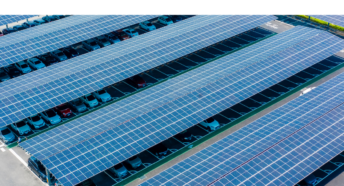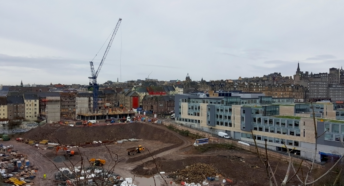Fracking breaks a manifesto pledge, and threatens to break the countryside
An earthquake is coming. Quite literally, if the Truss government goes ahead and lifts the ban on fracking.
Back in 2019, tremors of 2.9 on the Richter scale rattled the homes of people living near Cuadrilla’s controversial fracking site at Preston New Road, near Blackpool. It appeared to be the death knell for fracking, with a moratorium swiftly introduced to appease public anger.
Cut to 2022, and fracking is back in the name of the energy crisis. Illogically so, when gas is nine times more expensive than renewables. Which is to mention nothing of the environmental impact.
The new Chancellor got it right in March, when he said fracking ‘would take up to a decade to extract sufficient volumes — and it would come at a high cost for communities and our precious countryside’. Nothing has changed.
The leaked British Geological Survey report makes clear there has been no progress on predicting or lessening earthquakes associated with fracking. Homes and lives would still be damaged. Our countryside would still be industrialised. Air and water would still be at risk of pollution.
Determined to force fracking onto unwilling communities, the government is moving the goal posts. From a ban unless it could be proven safe, we’re now being told ‘as safely as possible’ will suffice.
The fossil fuel conglomerates rubbing their hands in glee at the thought of sky-high profits might at least have paid lip service to local residents. But instead, they’re calling for communities to be stripped of their right to object. The gas companies know local democracy will get in their way. They know that if people have a say, they will be unequivocal. Only this week, The Guardian reported that the new energy secretary was looking for ways to swerve any realistic consent process.
Years of polling shows support for fracking is consistently less than 25%, in direct contrast to the 75% who support renewable energy.
We need to be clear what’s at stake here. Not just the environment, but the democratic right of the public to object to its destruction. If the government thinks fracking has public support, it needs to test that by ensuring applications for drilling licences go through the normal local planning processes – where they will almost certainly be rejected. Any attempt to circumvent this is an affront to local democracy.
More seismic than the fracturing of the countryside and the damage to rural homes will be the monumental backlash. The fury of local communities will be off the Richter scale. Breaking a manifesto commitment is one thing. Breaking the countryside is another.
Within days of fracking rearing its ugly head again, the residents’ associations and protesters who spent years campaigning to prevent their neighbourhoods becoming a devil’s playground of gas wells began organising again. These are communities set to be hammered by the cost of living crisis. But they are damned if they will be bribed and bullied into submission.
The countryside is on the front line and is ready for the fight.
Ministers be warned.
A version of this article was originally published in the Daily Telegraph.









